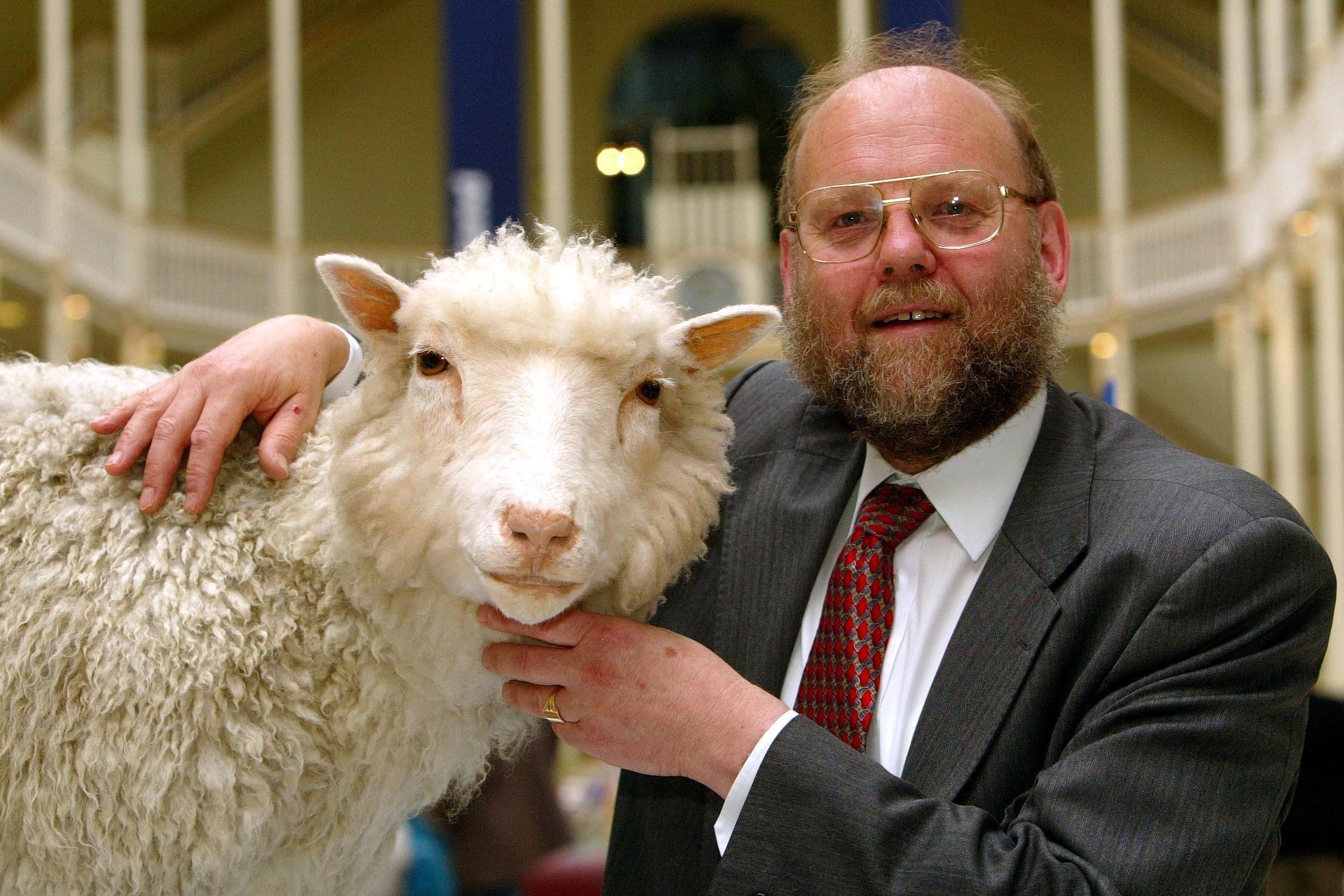Scientist who led team which cloned Dolly the sheep dies aged 79
Professor Sir Ian Wilmut was described as ‘a titan of the scientific world’ after his death.

Tributes have been paid to the scientist who led the team which cloned Dolly the sheep 27 years ago after he died at the age of 79.
Professor Sir Ian Wilmut was part of a team at the Roslin Institute at the University of Edinburgh which successfully cloned Dolly in 1996.
He retired from the University of Edinburgh in 2012 and revealed a diagnosis of Parkinson’s disease six years later.
Dolly was the first mammal to be cloned from an adult cell, but not the first ever sheep to be cloned.
Prof Wilmut hoped cloning would mean no species became extinct – but Dolly also helped to pioneer stem cell research.
He was described as a “titan of the scientific world” and a “household name”.
Scientists named Dolly after singer Dolly Parton, because she was cloned using a cell from the mammary gland of a six-year-old Dorset Finn ewe, and she was kept a secret for the first months of her life.
Dolly reproduced but died in 2003 – but is now on display in the National Museums of Scotland.
Prof Bruce Whitelaw FRSB, director of the Roslin Institute, said: “With the sad news today of Ian Wilmut’s passing, science has lost a household name.
“Ian led the research team that produce the first cloned mammal in Dolly.
“This animal has had such a positive impact on how society engages with science and how scientists engage with society.
“His legacy drives so many exciting applications emerging from animal and human biology research.”
Professor Sir Peter Mathieson, principal and vice-chancellor of the University of Edinburgh, said: “We are deeply saddened to hear of the passing of Professor Sir Ian Wilmut.
“He was a titan of the scientific world, leading the Roslin Institute team who cloned Dolly the sheep – the first mammal to be cloned from an adult cell – which transformed scientific thinking at the time.
“This breakthrough continues to fuel many of the advances that have been made in the field of regenerative medicine that we see today.
“Our thoughts are with Ian’s family at this time.”
Bookmark popover
Removed from bookmarks